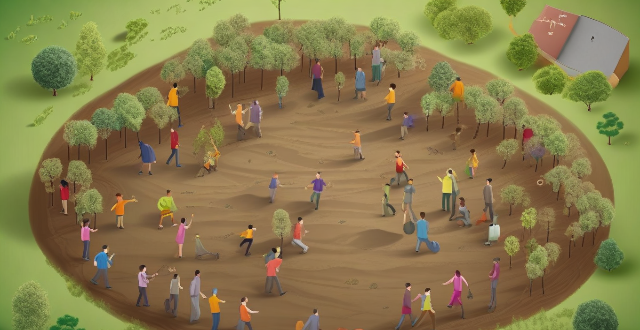Sociology plays a crucial role in understanding and addressing climate change by analyzing the social, cultural, and economic factors that contribute to the problem. Sociologists study social structures and norms, power dynamics and inequality, culture and ideology, and their impact on individual behavior related to climate change. They also conduct research and collect data on various aspects of climate change, educate the public about its social implications, analyze existing policies, advocate for new ones that prioritize social justice and equity, and collaborate with other disciplines to address climate change holistically. By identifying potential areas for intervention and generating innovative solutions, sociologists can help create a more equitable and sustainable future for all.

Introduction
Sociology is a social science that studies human society, including its development, structure, functions, and problems. It plays a crucial role in understanding and addressing climate change by analyzing the social, cultural, and economic factors that contribute to the problem. In this article, we will explore the various ways sociology helps us understand and address climate change.
The Importance of Sociology in Climate Change
Social Structures and Norms
Sociology helps us understand how social structures and norms influence individual behavior related to climate change. For example, societal expectations around car ownership or home size can lead to increased carbon emissions. By studying these social structures and norms, sociologists can identify potential areas for intervention and policy changes.
Power and Inequality
Climate change disproportionately affects marginalized communities, such as low-income households and indigenous peoples. Sociology helps us understand how power dynamics and inequality contribute to this unequal distribution of harm. By examining issues like environmental racism and classism, sociologists can work towards more equitable solutions to climate change.
Culture and Ideology
Culture and ideology shape our beliefs about climate change and our willingness to take action. Sociology helps us understand how cultural narratives around progress, growth, and consumption contribute to climate change. By challenging these dominant narratives and promoting alternative ones, sociologists can help shift public opinion and encourage collective action on climate change.
How Sociology Addresses Climate Change
Research and Data Collection
Sociologists conduct research and collect data on various aspects of climate change, such as public attitudes, policy effectiveness, and social impacts. This information is essential for developing evidence-based strategies to address climate change at local, national, and global levels.
Education and Awareness Raising
Sociologists play a vital role in educating the public about climate change and raising awareness of its social implications. They can use their expertise to communicate complex scientific concepts in accessible language and engage with diverse audiences through community outreach programs, media appearances, and public speaking events.
Policy Advocacy and Analysis
Sociologists analyze existing policies related to climate change and advocate for new ones that prioritize social justice and equity. They can work with policymakers to develop effective strategies for reducing greenhouse gas emissions, adapting to climate change impacts, and supporting vulnerable communities.
Collaboration and Partnership Building
Sociologists often collaborate with other disciplines, such as environmental science, economics, and political science, to address climate change holistically. By building partnerships across sectors and disciplines, sociologists can contribute to interdisciplinary research projects that generate innovative solutions to climate change challenges.
Conclusion
In conclusion, sociology plays a critical role in understanding and addressing climate change by examining the social factors that contribute to the problem and identifying potential areas for intervention. Through research, education, policy advocacy, and collaboration, sociologists can help create a more equitable and sustainable future for all.